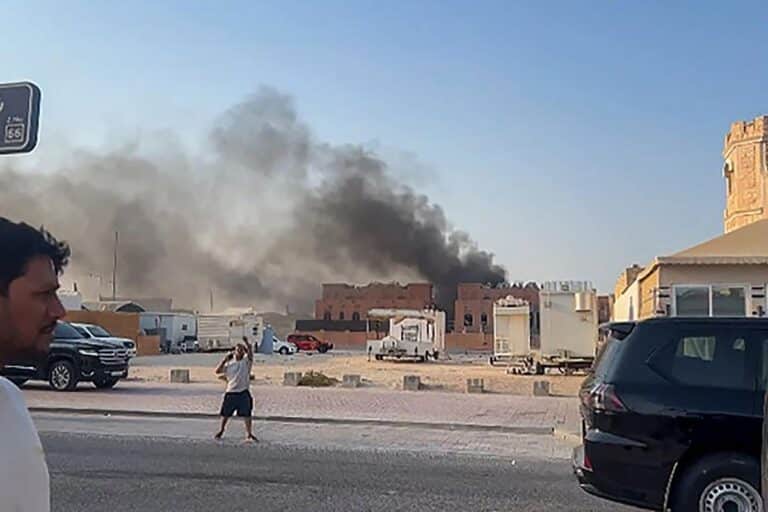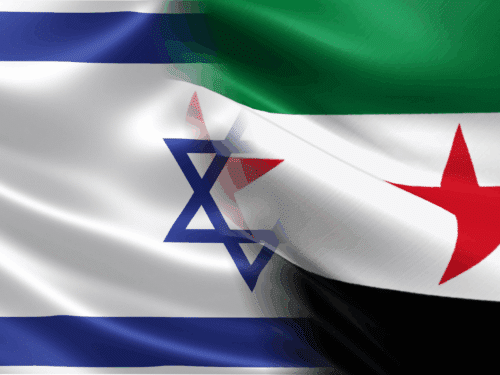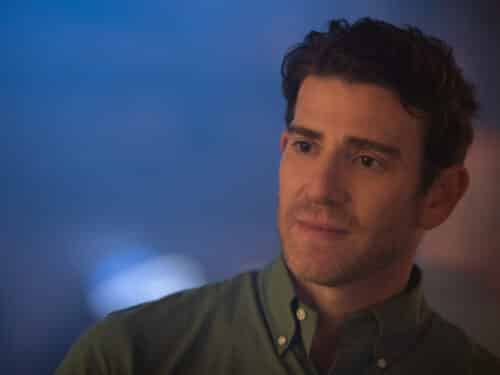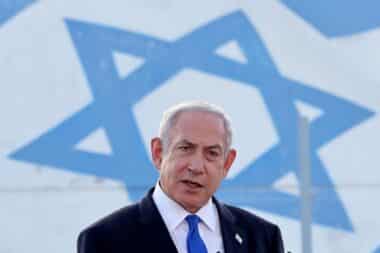
Israeli airstrikes targeted Hamas leaders meeting in Doha, Qatar, on Tuesday. The attacks come as mediators were attempting to get the terrorist movement and Israel to agree to a new ceasefire proposal presented by the United States.
Reportedly, a Hamas delegation led by Khalil al-Hayya was meeting at the targeted site when it was struck. It is unclear as of yet which other Hamas leaders were present at the meeting, as Hamas leaders are typically spread across several countries.
The Hamas leaders were reportedly gathering to discuss a recent ceasefire proposal presented by the U.S.. The plan is said to aim for a permanent end to the war in Gaza and would include the release of all the hostages in the first few days of an agreement.
In return, Israel would halt its planned operation in Gaza City, and negotiations would prevent a return to fighting. The U.S. and other mediators would serve as guarantors for the deal to ensure that neither side violates the terms of the agreement.
In the hours after the strikes, Hamas claimed that the delegation had survived the strikes, although several employees at the site and al-Hayya’s son were killed. The terrorist movement did not provide any evidence, as of Tuesday evening, that the leaders present survived the strikes. However, late Tuesday night, a photo began circulating on social media purporting to show al-Hayya alive in a hospital or clinic. Hamas has not made any official statement about the photo as of yet.
شاهد.. أول صورة للقيادي الحمساوي "خليل الحية" بعد محاولة اغتياله الفاشلة pic.twitter.com/CwT1XYaIRo
— وكالة إرنا العربیة (@irna_arabic) September 9, 2025
Israeli officials told the media on Tuesday that initial assessments indicated that the targets were at the very least injured, although assessments were ongoing to determine the results of the strikes. However, on Wednesday, those assessments had changed, with Israel reportedly telling the U.S. that the chances the operation had succeeded had decreased significantly.
On Wednesday, Hamas sources told Asharq Al-Awsat, a Saudi-owned newspaper based in London, that two Hamas leaders were injured in the strike, including one in critical condition. The sources refused to name the leaders and said they were receiving treatment in a private hospital under tight security.
The sources added that the reason no Hamas leaders were killed in the strikes may have been that Israel relied on the location of the cellphones of the Hamas leaders, which are usually kept with either the leaders’ vehicles or security, and not taken into sensitive meetings. Asharq Al-Awsat noted that this would explain why the primary casualties were among office workers and security.
The Hamas sources noted that “What happened seemed like an American-Israeli scam to gather the movement’s leaders in one place and eliminate them,” as some of the Hamas leaders present arrived from other countries, including from Turkey and Egypt.
Despite the strikes, however, the sources told Asharq Al-Awsat that “there is consensus within the Hamas leadership on the need to complete negotiations in a manner consistent with meeting Palestinian demands, ensuring a complete cessation of hostilities, and guaranteeing the withdrawal of Israeli forces from the Gaza Strip.”
The sources added that “contact with the mediators will resume in the coming days after the security situation stabilizes, allowing for the resumption of negotiation efforts,” noting that “internal consultations will be conducted in safe ways to determine how the negotiations will be managed to ensure the successful achievement of the goal of ending the war fundamentally, regardless of what happened during the operation.”
Media organizations affiliated with Hamas reported shortly after the strikes that contact had been lost with terrorist leaders al-Hayya, Khaled Mashal, and Zaher Jabarin.
Qatar’s Interior Ministry announced on Tuesday that a member of its Internal Security Force was killed in the strikes and several others were injured.
The office of Israeli Prime Minister Benjamin Netanyahu stressed in a statement on Tuesday afternoon that “Today’s action against the top terrorist chieftains of Hamas was a wholly independent Israeli operation. Israel initiated it, Israel conducted it, and Israel takes full responsibility.”
A Hamas safe haven no longer
While Hamas’ main stronghold has been in Gaza for many years, the movement’s leadership has often been based in several different countries, including Lebanon, Turkey, and Qatar. One of the main safe havens for Hamas leaders was in Doha, where they lived in luxury in premium hotels.
Throughout the war, Israeli officials warned that they would also target Hamas leaders abroad, as they were also involved in organizing the October 7 attacks. Just over a week ago, IDF Chief of Staff Lt.-Gen. Eyal Zamir threatened Hamas leaders abroad, warning, “We’ll get to them too.”
“We are surprising, acting with initiative, and reaching every target in order to ensure the security of Israeli civilians,” Zamir said.
Qatar has also served as a mediator between Israel and Hamas for years, including throughout the ongoing war in Gaza.
From 2018 until the outbreak of the war in 2023, Qatar transferred large sums of cash to Hamas on a monthly basis. The arrangement, approved by Israel, was intended both to discourage Hamas from escalating violence and to strengthen it as a counterweight to the rival Palestinian Authority, which governs the West Bank. The mechanism came under heavy criticism over the years, but was never halted. Qatar argued that the funds were meant to improve the humanitarian situation in Gaza, not to fund Hamas’ military capabilities.
Qatar has also been at the center of a controversial case in Israel known as Qatargate. The affair involves allegations that Doha funneled millions of dollars to figures close to Netanyahu, as well as former security officials, in an attempt to shape public opinion about Qatar in Israel and abroad.
Israel’s past attempts and successes targeting Hamas leadership abroad
This isn’t the first time Israel has targeted Hamas’ leadership abroad.
In July 2024, Israel assassinated Hamas leader Ismail Haniyeh in a covert operation in Tehran.
In January 2024, Hamas leader Saleh al-Arouri was assassinated in a drone strike in Beirut. Several lower-ranking Hamas members have been assassinated in airstrikes in Lebanon throughout the war.
In 2010, Hamas leader Mahmoud al-Mabhouh was assassinated in a hotel in Dubai, reportedly by Mossad agents, although Israel has never taken responsibility for the targeted killing.
In 2004, Izz Eldine Subhi Sheik Khalil, a Hamas official, was assassinated by a bomb hidden in his SUV.
In 1997, the Mossad attempted to kill Mashal in Amman via poisoning, but Israel was forced to hand over an antidote after Jordan’s King Hussein threatened to sever diplomatic relations and put the intelligence agents on trial.
World leaders condemn Israeli strikes on Doha
The strikes in Doha drew strong condemnations from around the world, including from the U.S. and other Israeli allies.
Qatar “strongly” condemned the strike, calling it “cowardly” and “a blatant violation of all international laws and norms.”
Qatari Prime Minister Mohammed bin Abdulrahman Al Thani warned that Doha wouldn’t tolerate any violation of its territorial integrity and reserved the right to respond to the Israeli strike. Al Thani added that Israel used weapons that avoided radar detection and called on the region to respond. He explained that the U.S. only informed Qatar about the attack 10 minutes after it had already started.
“Israel has worked to sabotage all chances for peace,” Al Thani said, adding that “mediation will continue on all issues in the region until stability is achieved.”
Anwar Gargash, the diplomatic advisor to the president of the United Arab Emirates, slammed the “treacherous Israeli attack.” Gargash added that the UAE was “affirming our full solidarity with [Qatar] in confronting this aggression,” stressing that “the security of the Arab Gulf states is indivisible.”
In a post on Tuesday evening, U.S. President Donald Trump stressed that “Unilaterally bombing inside Qatar, a Sovereign Nation and close Ally of the United States, that is working very hard and bravely taking risks with us to broker Peace, does not advance Israel or America’s goals.”
Trump says he's "very unhappy" about Israel's strike in Qatar pic.twitter.com/yKkNuZnrxM
— Aaron Rupar (@atrupar) September 9, 2025
He added, however, that “eliminating Hamas, who have profited off the misery of those living in Gaza, is a worthy goal.” The president said that after Israel informed him of its intention to strike, he immediately directed U.S. special envoy Steve Witkoff to inform the Qataris, but it was “unfortunately, too late to stop the attack.” Trump claimed that the strikes could serve as an “opportunity for peace” and assured Qatar that such attacks would not be repeated.
British Prime Minister Keir Starmer condemned the Israeli strikes, saying they violated Qatar’s sovereignty and risked further escalation across the region.
“The priority must be an immediate ceasefire, the release of hostages, and a huge surge in aid into Gaza. This is the only solution towards long-lasting peace,” Starmer said.
French President Emmanuel Macron called the strikes “unacceptable, whatever the reason may be,” adding, “War must under no circumstances spread in the region.”
How will this affect ceasefire and hostage deal negotiations?
The strikes in Doha cast uncertainty on the future of ceasefire and hostage deal negotiations.
Some analysts questioned on Tuesday whether the new American proposal was used as bait to get the Hamas leaders to gather in one place for the Israeli strike.
The Hostage and Missing Families’ Forum expressed concerns that the attack in Doha would put their loved ones at heightened risk.
“A grave fear now hangs over the price that the hostages may pay,” the Forum said. “We know from the survivors of the captivity who have returned that the revenge directed against the hostages is cruel. The chance of their return is now more uncertain than ever, with one thing that is absolutely certain – their time is running out. The price for 48 kidnapped men and women could be too heavy to bear. Lives could be taken at any given moment and the dead could disappear forever. It is time to end the war.”
In contrast, an Israeli official argued in comments to The Jerusalem Post that the strikes would help the negotiations move forward, even if Hamas temporarily pulls back from the talks. The source said that, if the strikes were successful, one of the only Hamas leaders left would likely be Mashal, who they say has been pushing other senior Hamas figures to accept a deal.
Israel’s KAN broadcaster assessed that one result of the strikes would be that Qatar would stop serving as a mediator in the negotiations between Israel and Hamas.
On Tuesday, an official briefed on the talks told Reuters that Qatari leaders were pressuring Hamas to “respond positively” to the U.S. ceasefire proposal.
#عاجل إلى جميع سكان مدينة غزة والمتواجدين في كل أحيائها، من المدينة القديمة وتفاح شرقًا وحتى البحر غربًا
— افيخاي ادرعي (@AvichayAdraee) September 9, 2025
⭕️جيش الدفاع مصمم على حسم حماس وسيعمل في منطقة مدينة غزة بقوة كبيرة، كما عمل في مختلف أنحاء القطاع.
⭕️من أجل سلامتكم، أخلوا فورًا عبر محور الرشيد باتجاه المنطقة الإنسانية في… pic.twitter.com/XiNYwBhPOQ
The strikes also came just hours after Israel issued an evacuation order for all residents of Gaza City ahead of a planned operation by the IDF to take over the entirety of the city.
Originally Published Sep 9, 2025 08:54PM EDT












